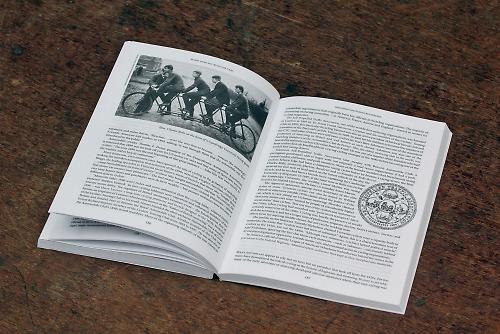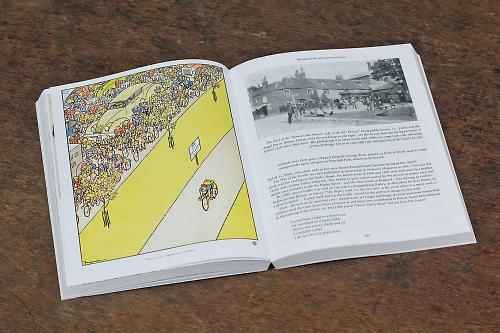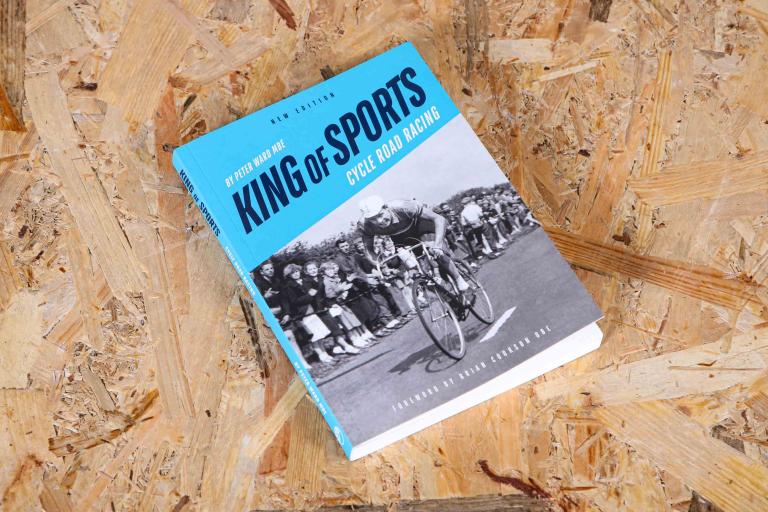- News
- Reviews
- Bikes
- Components
- Bar tape & grips
- Bottom brackets
- Brake & gear cables
- Brake & STI levers
- Brake pads & spares
- Brakes
- Cassettes & freewheels
- Chains
- Chainsets & chainrings
- Derailleurs - front
- Derailleurs - rear
- Forks
- Gear levers & shifters
- Groupsets
- Handlebars & extensions
- Headsets
- Hubs
- Inner tubes
- Pedals
- Quick releases & skewers
- Saddles
- Seatposts
- Stems
- Wheels
- Tyres
- Tubeless valves
- Accessories
- Accessories - misc
- Computer mounts
- Bags
- Bar ends
- Bike bags & cases
- Bottle cages
- Bottles
- Cameras
- Car racks
- Child seats
- Computers
- Glasses
- GPS units
- Helmets
- Lights - front
- Lights - rear
- Lights - sets
- Locks
- Mirrors
- Mudguards
- Racks
- Pumps & CO2 inflators
- Puncture kits
- Reflectives
- Smart watches
- Stands and racks
- Trailers
- Clothing
- Health, fitness and nutrition
- Tools and workshop
- Miscellaneous
- Buyers Guides
- Features
- Forum
- Recommends
- Podcast
review
£19.95
VERDICT:
Comprehensive enough to be classed as an essential reference, but sadly will probably not achieve the audience it deserves
Weight:
770g
Contact:
At road.cc every product is thoroughly tested for as long as it takes to get a proper insight into how well it works. Our reviewers are experienced cyclists that we trust to be objective. While we strive to ensure that opinions expressed are backed up by facts, reviews are by their nature an informed opinion, not a definitive verdict. We don't intentionally try to break anything (except locks) but we do try to look for weak points in any design. The overall score is not just an average of the other scores: it reflects both a product's function and value – with value determined by how a product compares with items of similar spec, quality, and price.
What the road.cc scores meanGood scores are more common than bad, because fortunately good products are more common than bad.
- Exceptional
- Excellent
- Very Good
- Good
- Quite good
- Average
- Not so good
- Poor
- Bad
- Appalling
"Get off the road!" That angry order some motorists shout at cyclists ought to become the longer, but historically more accurate: "Hey cyclists, thanks for the roads and the cars!" Carlton Reid's Roads Were Not Built For Cars sets out to demonstrate how cyclists led the charge for better roads, and it does so in a very readable and thorough manner.
Not only were roads not built for cars, they were not built for bikes either. Pedestrians were the first to take advantage of the pre-set routes, along with four-legged horse power. However, Reid argues that it is a motoring-centric view that roads are just for transport, and that in the past they have been seen as a public space for other uses. We still see glimpses of that today when roads are closed for sporting events, or when royalty give us an excuse for a street party.

Reid explains how the Roads Improvement Association played a key role in the early development of roads in the UK, and the Good Roads Movement played a similar role in America. Both bodies were derived from cycling organisations, but both were interested in all road users: motor transport was not the only consideration.
For many people it will be a surprise just how much bicycle manufacturers contributed to the development of the motor car. Far more technology in early cars came from the bicycle than from the horse and carriage. In fact there are 64 brands of motor vehicle mentioned with links back to bicycles, and that list is by no means comprehensive.
The initial idea for the book came from information gathered when Reid was preparing the campaigning website Ipayroadtax.com, which addresses one of the more frequent discussion points between motorists and cyclists. The book goes far beyond that topic, and provides a lot of information on what I would call campaigning issues, which are as relevant today as they have ever been: cycle paths, motorways, and road widening, for example.

It is clear from the outset that a reassuring amount of research has gone into the book, and if you want additional background information there are no less than 1,593 supporting notes on the website. The benefit that Google brought in speeding up the research is acknowledged, but even so the project still took over four years to complete.
Who will this book appeal to? It is quite hard to categorise. The publishers have allocated it the categories of Social History, Cycling, and Motoring – and that is both the problem and the opportunity. It would be great if all of us sharing the roads had respect for each other, and the information in a book like this could help all parties to appreciate the others' point of view. However, I fear that in practice it is only going to be bought by those who are pre-disposed to agree with the views expressed inside.
The printed versions have now sold out - Reid tells us he even sold the hardback copy originally set aside for his mum and dad. Various digital versions are also available at lower prices, from ePub through Kindle to iPad.
There will be a new, revised paperback version in early 2015, as after the first edition was published lots of other information came to light, and that material has already been incorporated into the digital versions.
If you do nothing else then visit the website and study the front cover, which references so much of what the book offers.
Verdict
Comprehensive enough to be classed as an essential reference, but sadly will probably not achieve the audience it deserves
road.cc test report
Make and model: Front Page Creations Roads Were Not Built For Cars by Carlton Reid
Size tested: Paperback
About the tester
Age: 55
I've been riding for: Over 20 years I ride: Every day I would class myself as: Expert
I regularly do the following types of riding: commuting, touring, club rides, sportives, general fitness riding,
Latest Comments
- brooksby 19 min 2 sec ago
There are comments on the Bristol Post about this along the lines of how pedestrians only ever have to wait a few seconds so why change anything....
- brooksby 20 min 46 sec ago
"A few decades down the line" our civilisation will have likely collapsed… But at least there will be plenty of space to park your Mad Max styled...
- parcours 39 min 16 sec ago
Anything is possible with a custom build. We do a reasonable number of track builds each year & can offer it on any road model in the line-up
- Condor Andy 46 min 31 sec ago
Velogames' Spring Classics comp is open and is more in tune with the road.cc game. You have 24 transfers to use between MSR and LBL. There are also...
- chrisonabike 42 min 50 sec ago
Yup - while I'm normally "more bollards" this needs nuance....
- NPlus1Bikelights 1 hour 19 min ago
Mildly interested. My knees don't like the rotations needed for unclipping, I use well made Japanse MKS half clips on a commuter bike. They do...
- Born_peddling 1 hour 42 min ago
Was just about to say UCI corrupt? Never! 🤣
- Miller 1 hour 43 min ago
Sounds great but worth noting that the Osmo Action 4 can be had for £189 at the moment.
- hawkinspeter 1 hour 44 min ago
Campaigners condemn Liveable Neighbourhood vandalism:...
- Pink Duck 1 hour 58 min ago
The Cyclists Dismount signage is now up, not that anyone pays any attention to it.







Add new comment
7 comments
I realise its not exactly a difficult task to find the site oneself, but surely the normal thing would be for the words
"visit the website" to be a link to the website?
And I don't have an e-book reader
(Will the paper version ever get a reprint? - Ah, maybe next year, then?)
Luckily I own both the digital version and a signed copy of the hardback and it is one book that is absolutely fascinating reading that I am only to glad to have given Carlton my money for.
Guys, guys. Steel is real.
I'm waiting for it to come out in a 953 version.
In all seriousness, this is a fascinating book, excellently compiled.
Enjoying iPad version, perfect weight.
Very informative, well done Carlton. Obviously huge amount of research done to produce this.
Bit heavy really.
Is there a carbon version?
Carbon's too heavy; the digital version weighs nothing yet contains even more information!
I'm after a digital bike next
Well according to the latest research this statement is not true, because a spinning hard drive, or indeed memory ships, actually weigh more when something is stored on them and in them... making your comment almost as controversial as saying that a helmet should be worn, or even - dare I say - whether or not tubeless tyres or disc brakes on a road bikes are worthwhile